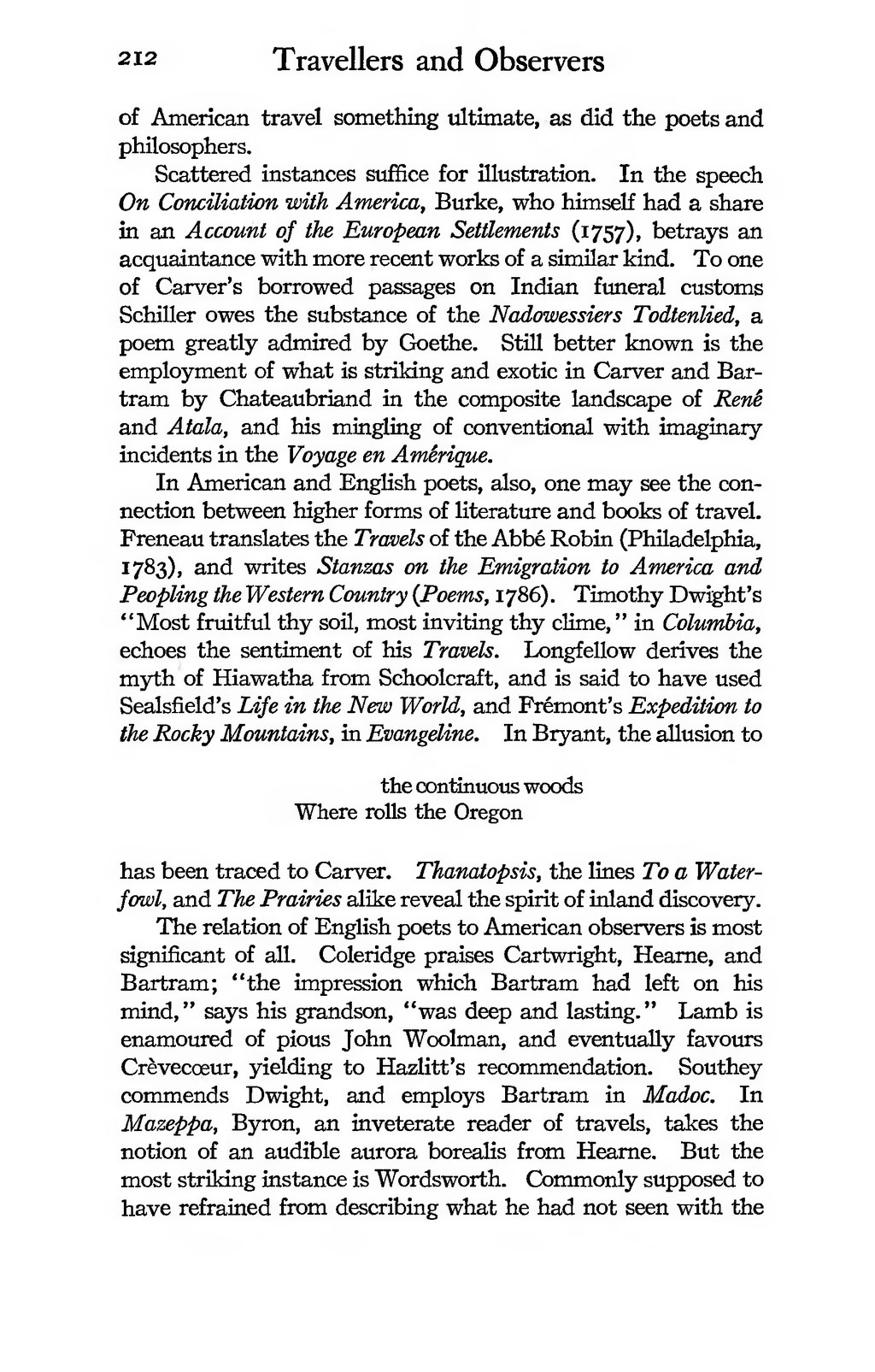of American travel something ultimate, as did the poets and philosophers.
Scattered instances suffice for illustration. In the speech On Conciliation with America, Burke, who himself had a share in an Account of the European Settlements (1757), betrays an acquaintance with more recent works of a similar kind. To one of Carver's borrowed passages on Indian funeral customs Schiller owes the substance of the Nadowessiers Todtenlied, a poem greatly admired by Goethe. Still better known is the employment of what is striking and exotic in Carver and Bartram by Chateaubriand in the composite landscape of René and Atala, and his mingling of conventional with imaginary incidents in the Voyage en Amérique.
In American and English poets, also, one may see the connection between higher forms of literature and books of travel. Freneau translates the Travels of the Abbé Robin (Philadelphia, 1783), and writes Stanzas on the Emigration to America and Peopling the Western Country (Poems, 1786). Timothy Dwight's “Most fruitful thy soil, most inviting thy clime," in Columbia, echoes the sentiment of his Travels. Longfellow derives the myth of Hiawatha from Schoolcraft, and is said to have used Sealsfield's Life in the New World, and Frémont's Expedition to the Rocky Mountains, in Evangeline. In Bryant, the allusion to
the continuous woods Where rolls the Oregon
has been traced to Carver. Thanatopsis, the lines To a Waterfowl, and The Prairies alike reveal the spirit of inland discovery.
The relation of English poets to American observers is most significant of all. Coleridge praises Cartwright, Hearne, and Bartram; "the impression which Bartram had left on his mind," says his grandson, "was deep and lasting." Lamb is enamoured of pious John Woolman, and eventually favours Crèvecœur, yielding to Hazlitt's recommendation. Southey commends Dwight, and employs Bartram in Madoc. In Mazeppa, Byron, an inveterate reader of travels, takes the notion of an audible aurora borealis from Hearne. But the most striking instance is Wordsworth. Commonly supposed to have refrained from describing what he had not seen with the
